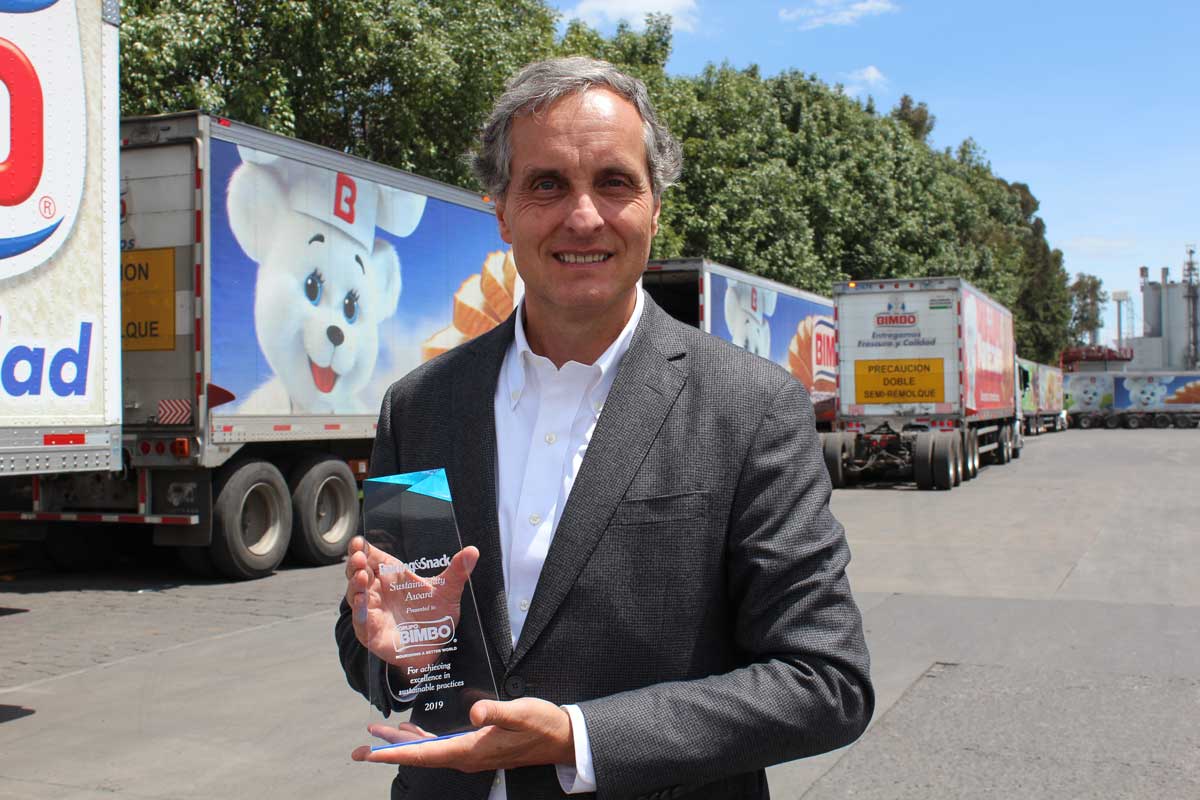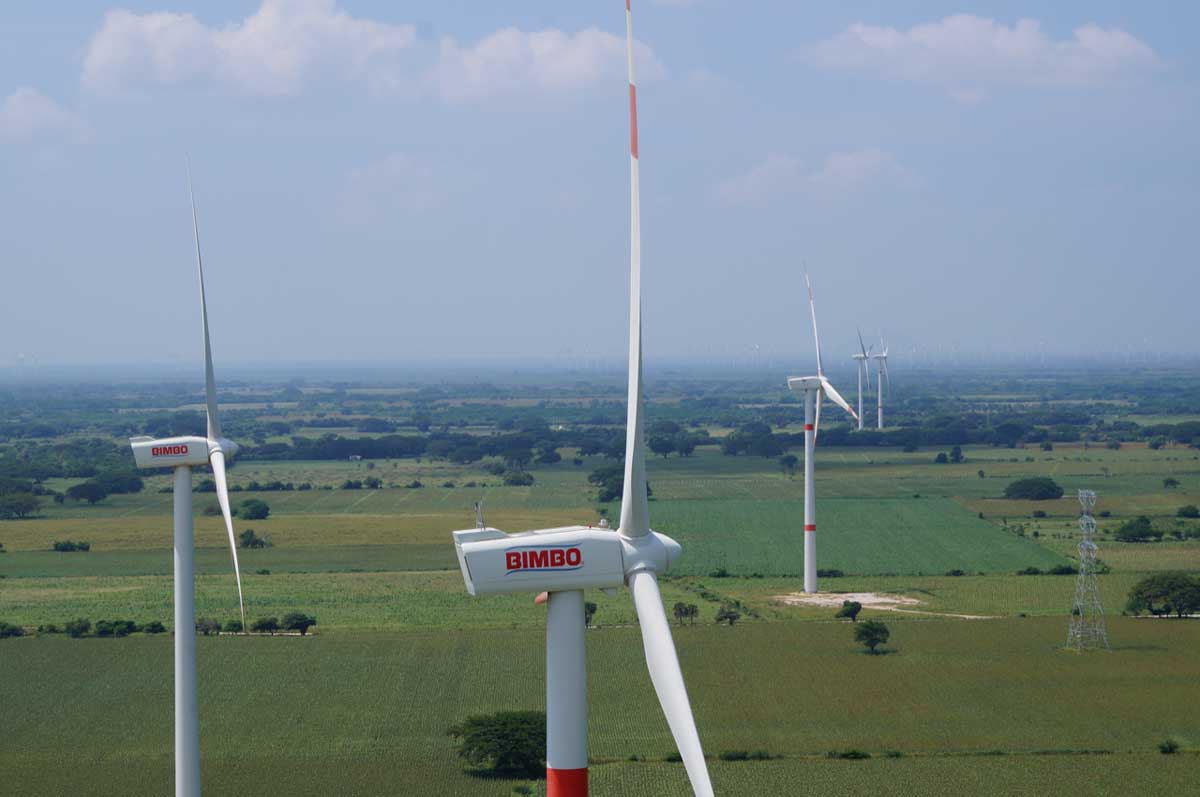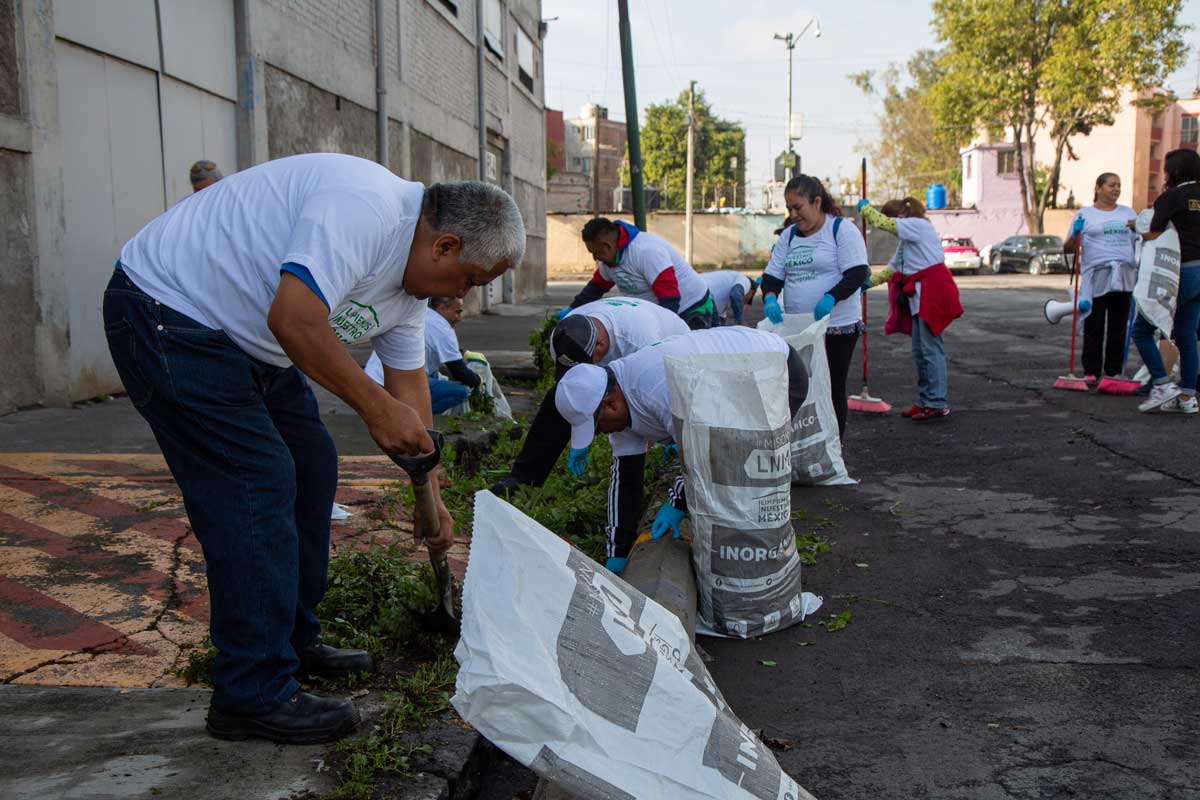Sustainability: It’s top of mind — and often a purchase driver — for everyone from consumers to retailers and food manufacturers.
For Mexico City-based Grupo Bimbo S.A.B. de C.V., it’s in the company’s DNA. Since the bakery’s inception in 1945, Grupo Bimbo has focused its purpose to build a sustainable, highly productive and deeply humane company.
“Our sustainability program comes from our purpose as a business,” said Daniel Servitje, chairman and chief executive officer of Grupo Bimbo. “To put some teeth to the ground, we asked ourselves, ‘Who are the stakeholders we need to fulfill our purpose?’ The answer was our associates, our consumers and society as a whole.”
From there, Grupo Bimbo built four pillars — Well-being, Planet, Community and Associates — to put sustainability at the center of its business and bakery operations.
“For us, sustainability is not only about the planet,” Mr. Servitje said. “It is also about what we have to do as a company to remain a viable entity for the generations to come.”
The program is part of Grupo Bimbo’s 2020 Vision, set forth in 2015 to transform the baking industry and expand the company’s global leadership to better serve more consumers. With hundreds of initiatives ranging from water conservation and reduced carbon footprint to community and product development, Grupo Bimbo’s impact has been felt around the world and, because of this, earned the distinction of Baking & Snack’s first Sustainability Award recipient.
The business proposition
Every effort in each pillar has the same requirements: reach the intended goals and be good for the business. As the 2020 Vision comes to fruition, Grupo Bimbo uses these practices to make thoughtful business decisions and serve as an example for the industry worldwide.

To set the overall strategy, Grupo Bimbo performed a third-party materiality study in which it polled key stakeholders, including customers, consumers, suppliers and others, to identify what aspects of the company matter most to them.
“It provides a roadmap for what’s really important to our stakeholders,” said Jorge Zarate, global operations senior vice-president, and sponsor of the Planet pillar.
Mr. Zarate recognized that strategy execution relies primarily on the business benefit to do the most good.
“For each initiative, everybody has to win,” he said.
In Mexican manufacturing culture, bakeries house several production lines — as many as 15 — in fewer facilities. In Bimbo’s plant in Toluca, Mexico, several lines make a variety of products ranging from bread and buns to sweet goods to tortillas. Insulation panels on these ovens provide several benefits beyond energy conservation, including keeping the bakery at a comfortable temperature.
“It’s telling the associates, ‘We care about you. It’s not humane working in uncomfortable conditions, so let’s fix it,’” he said. “And in addition, the company will save money with the gas reduction.”
Keeping a business perspective in all its efforts not only leads to growth for the company, but it also provides more financial resources to expand those efforts even further.
“At the end of the day, our initiatives have to pay for themselves, and that allows us to do more good because it’s good for the business as well,” Mr. Servitje said. “There are hundreds of initiatives, such as energy conservation, renewables and reducing our water footprint, that have been born from the savings we got out of other initiatives that benefitted the business.”
For the planet, across the planet
Although sustainability does not solely pertain to the environment, it is a key element of Grupo Bimbo’s efforts, for which Mr. Servitje was an early proponent.
“At the time we began this journey, we pushed for more energy conservation and making Grupo Bimbo a force for good in the environment,” he recalled.
Today, Grupo Bimbo’s environmental strategies focus on carbon footprint, water reduction and waste management, each with its own set of initiatives to reach specific goals in the 2020 Vision.
Known for its challenges with pollution and overpopulation, Mexico City is the logical place for Grupo Bimbo to set environmental standards, and Alejandra Vazquez, global environmental management director, has been an integral part of that. Ms. Vazquez leads the effort to standardize all environmental best practices throughout the company in all regions of the world.
“She has been involved since the beginning,” Mr. Zarate attested. “Mexico, by far, is the culture of the business unit that has more environmental skills and procedures, and the best of that has been driven by Alejandra.”
With the strategies in place, Grupo Bimbo can standardize them globally to ensure the same environmental sustainability in every region where it has a footprint. In fact, every plant has 10 mandatory best practices that it must adhere to.
“We need to have the same Grupo Bimbo in all the places where we operate,” Ms. Vazquez said.

Carbon footprint is an area that can easily reveal business benefits through energy efficiency. In fact, Grupo Bimbo has a specific focus on renewable energy projects under the leadership of the finance department. It all began in 2012 with the wind farm Piedra Larga followed by electric vehicles and last year by solar panels now deployed to more than 70 facilities worldwide, with a total of 25 MW of installed capacity.
“That was the beginning for most of the activities in Mexico, the United States and Chile,” Mr. Zarate said.
With the wind farm plus solar panels, the company currently gets about 90% of its electrical energy for 43 plants and sales and distribution centers in Mexico, which puts Grupo Bimbo on track toward 100% renewable energy by 2025.
Ms. Vazquez sees this as a starting point to greater change.
“In places like India or Latin America — and all the countries where we operate — when we start solar systems or other commitments in renewable energy, we set the example for something everyone can do because we have demonstrated tangible benefits.”
In water reduction, Ms. Vazquez has focused on initiatives such as treatment for recycling the water used in cleaning, plumbing and irrigation. Over the years and through technology advances, water treatment facilities also have become more energy efficient by treating more water in less time and in a smaller footprint.
The next project, Ms. Vazquez said, will be installing systems to harvest rainwater.
Drilling down to control waste
In terms of waste management, the company achieves its goals through packaging innovation, recycling, culture and post-consumption initiatives. Grupo Bimbo recently announced the launching of its first line of compostable packaging for bread with its Pan Bimbo Vital products. It is the first bread packaging of its kind in the country.
This is just one step toward reducing the use of plastic in all the company’s processes through the development of recyclable, biodegradable and/or compostable materials and alliances for linear and circular recycling promoting economic cycles. From there, Grupo Bimbo will focus on those global regions that are faced with specific challenges in waste management such as in Latin America and Asia.
“Different countries have different problems with plastic, and we are using innovation — reducing the thickness of the plastic or the size of the package — to help incentivize recycling efforts,” Ms. Vazquez explained.

Innovation and recycling are internally focused, but Grupo Bimbo also emphasizes external efforts to drive movement. While the company works in different countries to promote environmentalism, programs such as “Clean Our Mexico” (“Limpiemos Nuestro Mexico” in Spanish) are getting the job done at home.
“The main idea is to improve our culture in recycling waste,” Ms. Vazquez said.
In 2019, Clean Our Mexico brought in 5 million volunteers across the country to focus on cleaning up their communities for one day.
Grupo Bimbo believes these efforts can impact the entire supply chain.
“Our main focus for these good things is that we want to deploy what we do in Mexico to all the countries where our business units operate,” Mr. Zarate said. “Little by little, we can altogether make a wave.”
And, as Mr. Servitje was quick to point out, that kind of sustainability cannot be achieved through environmentalism alone.
Editor’s Note: This is the first installment of a four-part series exploring Grupo Bimbo’s sustainability strategy, which also includes Wellbeing, Community and Associates pillars.




